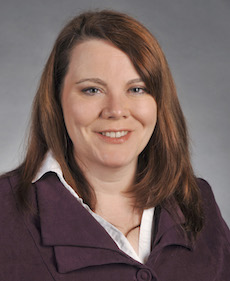Idaho State University Spanish for the Health Professions program helps Snake River High School students receive college credits
August 24, 2016
POCATELLO – The Idaho State University Spanish for the Health Professions major program started in 2014, and is already making strides in the Pocatello and surrounding communities. In addition to ISU students taking classes in the program, students at Snake River High School rece

In 2015, ISU physician assistant studies Chair, Paula Phelps, and ISU global studies and Spanish Professor, Cathleen Tarp, recognized a need for Spanish speakers in the health professions. They wrote a grant to the Health Resources and Services Administration that featured new programs that would benefit both ISU students and members of the Latino community. Their five-year “Pipeline to Diversity” grant was funded for $1.1 million. Melanie Domenech-Rodriguez, psychology professor at Utah State University, is a co-principal investigator on the grant.
One of the programs created from the grant helps high school students in large Latino communities learn the specialized Spanish, ethics and standards needed to be an interpreter in a health care setting.
“Our goal is for students to understand and be able to communicate effectively in both English and Spanish, as well as understand the culture behind the people they are helping serve,” Tarp said. “If we can help each student develop these assets and skills, then we can help them go on to college and be successful there and in the workforce.”
The grant provides textbooks, test fees, interpreter training, academic enrichment activities, mentoring and career counseling. Once passing the two core classes offered through ISU Early College Program for six credits, the students took the Spanish CLEP exam. Every student who participated in the program earned between 18 and 22 college credits from the CLEP exam. This allowed each Snake River High School student in the program to already have almost a year’s worth of college credits under their belt before stepping foot on campus. Because of the grant funding, the students paid nothing out of pocket.
After completing the program, Snake River High School students were able to show what they had learned during a health fair at their high school.
The courses also helped the students learn of the different kinds of health professions that they could go into. Professionals came every other week to give presentations on each health care field. The students were able to learn what each profession does, how many years of school it requires, the future of the profession and how much each profession makes. They were also able to learn about financial aid, scholarships and basic economics.
As a capstone, students took the Morales-Dimmick medical interpreter course and exam. The week-long medical interpreter class and exam allows students to show they are qualified to interpret when they look for jobs. They know the ethics, have the language skills and understand HIPAA.
“This exam gives them a leg up when they are looking for shadowing or internship opportunities,” Tarp said. “These students can actually be of immediate service to the providers and patients as interpreters. What they have is gold. They have something that people want. They can make a valuable contribution to our society and our health care. They can be leaders in health care and they are needed.”
The grant-funded, dual-enrollment program will soon be available to students in other Idaho high schools.
Tarp created the Spanish for Health Professions Bachelor of Arts curriculum to provide both health professionals and language students a unique program of study, as well as many service learning opportunities that will be an asset to them for years to come. The curriculum requires ISU students to take both Spanish and culture classes along with their studies in their chosen health profession, and participate in extraprofessional activities including health screenings, interpreting for health professionals and assisting in the Cavity Free Kids initiative by providing bilingual dental health education materials.
“Our required activities help remind students that the reason they are going into healthcare is to help people,” Tarp said. “They also log a number of service hours, which are often required by the health professions programs that the students want to get into.”
Tarp is also the director of the Graduate Certificate Program in Spanish for Health Professions. The 15-credit certificate provides online and real-time courses in Spanish, interpreting and translation, and culture to graduate students. For more information on the Bachelor of Arts degree in Spanish for Health Professions, the Health Resources and Services Administration grant or the graduate certificate, contact
Tarp at 282-3329 or tarphele@isu.edu.
Photograph info: Cathleen Tarp
Categories:
